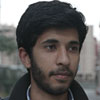Child rights advocacy campaign holds UPA govt accountable for its promise to allocate 9% of GDP for education and health
About 50 children from different parts of the country came together to talk about problems of child labor and their grievances about the non-implementation of Right to Education (RTE) at a consultation organised in the national capital on Friday.
The children raised issues regarding lack of primary teachers, nutritious food and water, and quality education. According to them, caste- and gender-based discrimination in schools is a key factor for the high dropout rate.
Demanding their rights, the children pointed out that the government’s responsibility does not end with merely setting up schools. They said the government should also ensure that the schools are run efficiently.
The consultation was organized by NineisMine, a child rights advocacy campaign to hold the UPA government accountable for its 2004 pre-election promise to allocate 9 percent of the GDP for education and health by 2009.
NineisMine is led by ‘Wada Na Todo Abhiyan’, a national coalition of over 900 civil society organisations. It has been organizing jan sabhas, or public meetings, with children across the country to encourage them to open up and voice their problems. These children are now preparing a ‘children’s manifesto’ that records vulnerability as seen through their eyes. The manifesto will also jot down recommendations to improve their conditions.
At the consultation, experts assured the children that they would take their problems to the authorities.
Speaking about exploitation of the marginalised section in rural areas, former bureaucrat and social activist Harsh Mander said such exploitation has existed since the time of Eklavya, Guru Dronacharya’s pupil in the Mahabharata. He said there is a need to continue to fight against the exploitation and demand for space where all can grow together.
“Private schools tried hard to not give 25 percent reservation to the underprivileged children in their schools as part of the Right to Education Act. But they failed after the Supreme Court dismissed their plea,” Mander remarked.
Calling it a tragedy that children do not get basic amenities even more than 60 years since independence, Praveen Jha, professor of economics at JNU, said the government is negligent on such issues. “The mechanisms used in budgetary processes need to be reviewed to not only ensure that adequate budget allocations are made but also that they are disbursed on time and made accountable to people,” he added.
Biraj Patnaik, advisor to the Supreme Court, called discrimination as the biggest problem of the country. “Budgets for food security and social services need to be enhanced,” he said.
